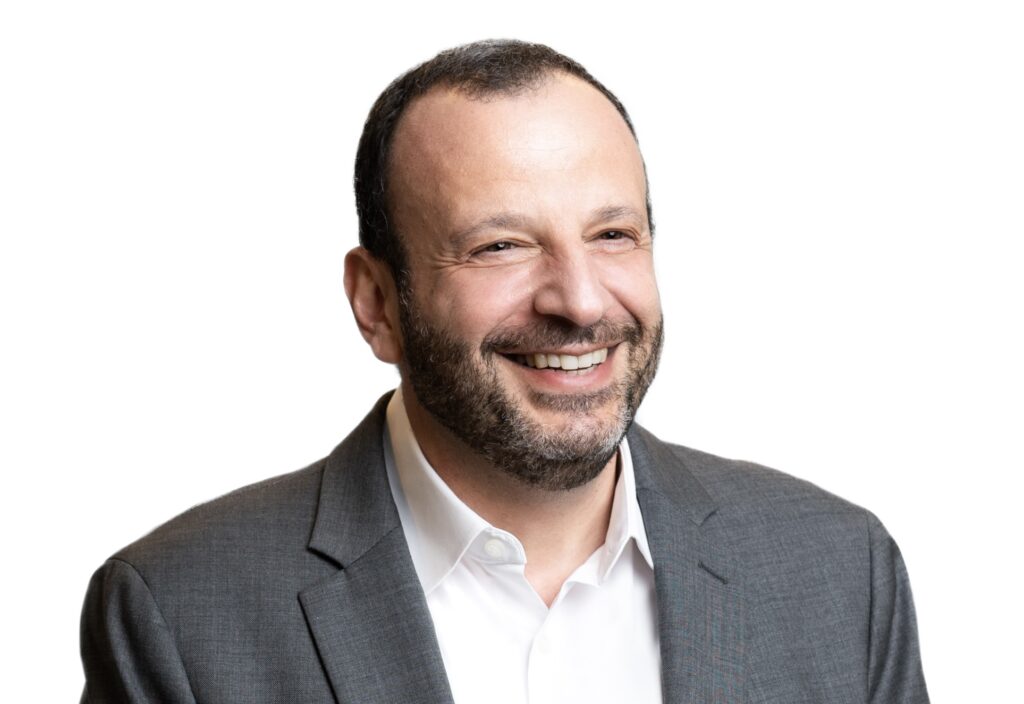
Otsuka Pharmaceutical’s North American CEO —Tarek Rabah — has deep respect for all the entrepreneurs who were at at the annual HLTH conference in Las Vegas touting their capabilities.
“I come from Lebanon, where we have family businesses, and I started with that,” Rabah said in an interview last month. “I have very high respect for entrepreneurs that want to start something, are very passionate about it, have the patience and the courage to go in and seek someone [who can be a partner]. So I do respect that.”
Rabah was one of many life sciences executives who descended on Las Vegas hoping to likely scour digital health innovations, strike pharma-tech partnerships and in general get a feel for where the industry is headed. Here is a brief Q&A which touches on how Rabah approaches health tech, where he believes AI can have an impact on the pharmaceutical industry and the healthcare industry overall. And of course, we talked about elephant in the room: drug pricing (Slightly edited for length and clarity)
MedCity News: What are the health tech categories you are interested in?
Rabah: We are looking to see who can actually help us with the biomarker journey — what else are we not seeing? We’re looking for people that can help us make sense of so much information that is available out there for patients that can help us understand them better…. I’m actually super interested as well to see … how is healthcare being reshaped with AI in general. Are we getting more access to providers? Are we getting more access to treatment? Most importantly for me since we’re focusing on psychiatry, neurology, also other diseases, the biggest issue for any pharmaceutical company is access. And for me, what’s most interesting is to see, with all of these technologies, are we getting patients to access more? Are we getting better health systems? This is what I’m looking for.
MedCity News: Beyond drug discovery and decentralized clinical trials, where can AI have impact in the pharmaceutical industry?
Rabah: What excites me the most about AI is it’s really affecting the whole value chain. We have our HR folks talking about AI. We have our finance folks talking about AI, our supply chain folks talking about AI, our clinical trials folks talking about how can we get digital biomarkers in order for us to identify patients and track their progress commercially? We have so much data in the United States in general, I don’t think we have the capacity to make sense of it. And I think AI is going to help us a lot so we can go to the right patients, we can go to the right physicians, and we can even estimate the educational content that we have to deliver based on whatever insights we have.

The Power of One: Redefining Healthcare with an AI-Driven Unified Platform
In a landscape where complexity has long been the norm, the power of one lies not just in unification, but in intelligence and automation.
MedCity News: How are you looking at the landscape of drug pricing right now? Medicare obviously got the ability to negotiate drug prices for 10 drugs and then more drugs will enter that sphere as well. How do you feel about that?
Rabah: These are very important questions and honestly will shape the industry for years to come. I know we talk about IRA and I don’t think everything in it is bad. What I like the most is that it’s increasing access to Medicare patients, it’s lowering copay for these medical patients and of course the industry has to pay for that and other stakeholders. We are okay with that and we are more than happy to take our part in this as long as you get more access. What I’m really worried about is if you are coming in with a drug, and typically the way you develop a drug is you get first indication and then you get multiple indications especially in psychiatry, oncology, rare diseases — all of these. We take nine years to develop a drug before you get into price negotiation. So my issue is you have suddenly put in a disruptor that every company will have to take into consideration and I’m a little bit concerned that this will limit the availability of therapeutics in the future specifically for disease areas where the overwhelming majority are elderly and Medicare patients.
MedCity News: I completely hear what you’re saying, but you’re not saying this to people in Europe where there are price caps. The same drug is selling for much lower there, right?
Rabah: Definitely, we are saying it.
MedCity News: Are you really? Because I feel like the sucker is the American taxpayer.
Rabah: I don’t see it this way. What I see it is, and I’m somebody that worked around the world in so many places and I can’t really be on top of my game if I was not in the US, because the US is the last bastion of innovation. And I say it openly because if the US goes the same way as all of the others go, I think we have much less innovation.
MedCity News: We will see I guess.
Rabah: The question that I ask, I always ask with all of my colleagues in pharma is, “Is it only pharma [that’s charging high drug prices]?” I mean go have an X-ray — have an X-ray in India and have an X-ray in the United States. How much does it cost? It’s a lot cheaper in India. So, we have to look at the entire system overall. We have to innovate to remove a lot of inefficiencies and should not only look at one thing and make it the focus because then we are missing the solution.
Photo: Otsuka Pharmaceutical North America








